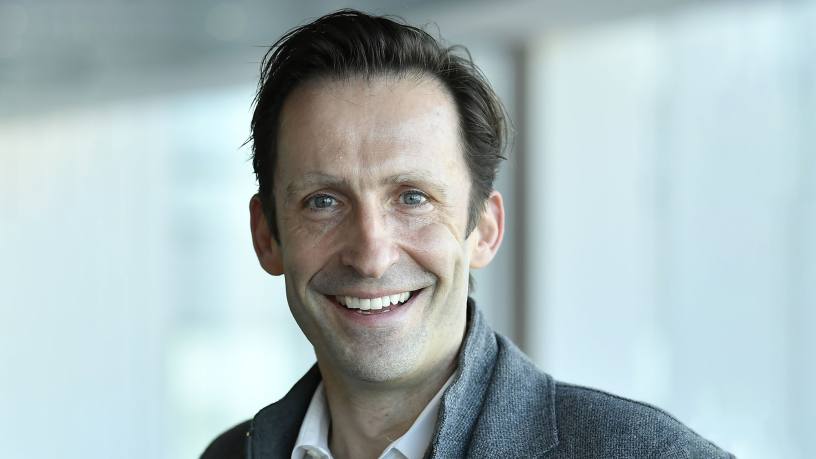Shortly after the closure of the FTX crypto exchange in late 2022, Goldman Sachs CEO David Solomon penned an opinion piece in the Wall Street Journal titled “Blockchain Isn't Just Crypto,” in which he said, “Big investors and small investors alike can benefit from blockchain innovation led by established, experienced institutions.”
Although Solomon's article was written at the start of what many are calling a “second crypto winter,” a period in which digital asset valuations have plummeted, Matthew McDermott, global head of digital assets at Goldman Sachs, said his views are “more relevant and resonant today than they were then.”
2021 Director of CoinMetrics
2010 Managing Director, Goldman Sachs
2005 Executive Director, Goldman Sachs
1996 Morgan Stanley Analyst/Associate
Several events have occurred in the decentralized finance space since late 2022. FTX founder Sam Bankman-Fried was convicted of seven counts of fraud, while Binance founder Changpeng Zhao pleaded guilty to money laundering in a settlement with US authorities.
Cryptocurrency goes mainstream
Meanwhile, the European Securities and Markets Authority released its Crypto Asset Market Regulation, providing the EU with pending market rules, while the U.S. Securities and Exchange Commission opened the door to the introduction of spot Bitcoin exchange-traded funds in the U.S. Both actions were greeted with enthusiasm by many in the industry, signaling crypto assets will go mainstream by allowing, in Solomon's words, “guidance from established, experienced institutions.”
The SEC ruling was “a very significant moment for the market given the sheer size of the U.S. market,” McDermott said, but the past 12 to 18 months have seen big changes.
“The foundational layers have been built over many years,” he says. “We're now seeing a great deal of regulatory clarity around the world, and you can't underestimate how important that is, especially for organizations wanting to invest in this space and build their digital asset strategies and teams.”
While the crypto market as a whole is dominated by unregulated exchanges and unlicensed participants, McDermott said the bank is now seeing “a growing number of institutional clients who want to get involved and trade.”
The growth is due to the recent Bitcoin ETF ruling in the U.S. But even before that ruling, derivatives marketplace CME Group “has seen a significant increase in trading volume over the past 12 months,” he added. “The exchange has the largest open interest, and it's now larger than any non-regulated exchange. That's a big change.”
These developments allow institutions and retail investors to trade digital assets without worrying about self-management and the risks that come with it, McDermott said. [interact] “We're seeing increased investment protection,” he added. “We're seeing more user-friendly products with features for all institutional investors, which we think is a very good thing.”
Goldman Sachs also rolled out Datonomy, a subscription data service developed in collaboration with global index provider MSCI and crypto data firm Coin Metrics that categorizes digital coins and tokens. The analysis and research can be used to benchmark performance, manage portfolios or create investment products based on areas such as decentralized finance, metaverses, smart contract platforms and value transfer coins.
“We had a lot of clients coming to us wanting a more nuanced understanding of the digital asset ecosystem,” McDermott said. “Being able to create a taxonomy that goes into a lot more detail and be able to talk about specific tokens with a focus on stablecoins and smart contracts is powerful in itself, especially if you're looking to invest or create a benchmark index.”
Priority Areas
Two of Goldman Sachs' main areas of focus this year are developing proofs of concept around tokenization and expanding the use of blockchain technology within the bank, he said. “Again, it comes back to the question, 'Does this technology solve a real-world problem or is it just an intellectual curiosity?'” he added.
McDermott noted a “tokenization continuum,” noting that the market will first tokenize common financial products to allow investors to “get used to” the concept and scale up. Once “true commercial value” is achieved through scale, tokenization will move into more “esoteric” markets such as real estate private equity, he added.
“We are involved in certain projects in this space and it's probably taking a few months longer than we planned because we want to make sure that whatever we do is scalable,” he says. “Not only does the proof of concept need to be scalable, but we've looked at the entire lifecycle to ensure economic efficiency across the lifecycle and that it's a seamless investment opportunity for anyone looking to invest.”
Blockchain technology is one of the “key areas” McDermott has focused on for several years, he added. “There's a huge opportunity there to de-risk markets, to drive efficiencies by mitigating settlement and operational risk, to use liquidity and capital (which continues to rise in cost) more efficiently, and the seamless nature of it allows it to move through the system in a very transparent way.”
As well as developing blockchain technology within the bank, Goldman Sachs has made 11 investments in companies operating in the digital assets space since McDermott launched his business.
“Cryptocurrencies are exciting and offer some very interesting opportunities, but there are also strong opportunities in the underlying technology,” he added.

